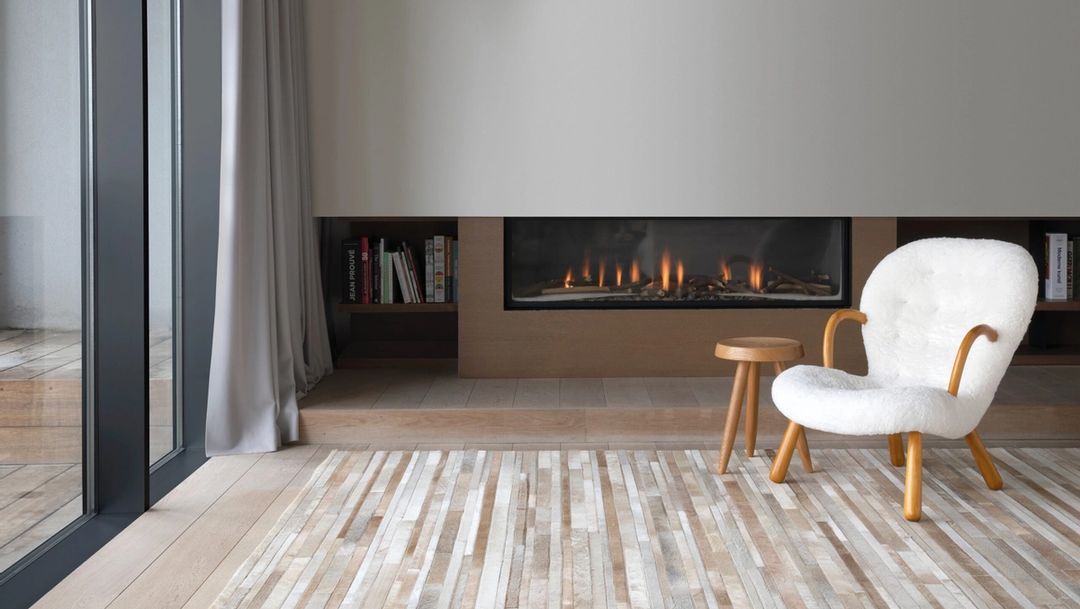How to Keep Your Home Warm And Conserve Energy

January 27, 2021
1/27/2021
Written by: Natalie Henderson Marketing associate @blueland
As temperatures become more extreme, and winter temperatures hit freezing, we have to heat our homes. While heating our homes is necessary, it takes a lot of energy to produce enough heat. We have tips on how to conserve energy and heat your homes more efficiently this winter, so you can heat your home and limit the environmental impact.
How Energy Use Impacts The Environment
In New York City alone, there are one million buildings in need of heat in the winter. Heating homes and hot water in the winter account for up to 42% of the city’s total greenhouse gas emissions. Why does heating have such a high environmental impact? It all comes down to how our homes and buildings are heated.
The majority of homes in the United States are heated with boilers and furnaces, which take a lot of energy to run and produce heat. Over 81% of all energy in the U.S. is derived from fossil fuels like coal, oil and natural gas. We burn coal, oil and natural gas to use energy we then use that energy for heat. When we burn fossil fuels, harmful greenhouse gasses are released, like CO2 and methane. Coal releases the most CO2 when it is burned, then oil, then natural gas. As a result, in the U.S. we have turned to natural gas as the primary energy source. However, while natural gas releases fewer greenhouse gas emissions compared to coal and oil, there are still problems with natural gas.
Is Natural Gas Energy Better To Heat Your Home?
Natural gas is comparatively a “cleaner” option than other fossil fuels like coal and oil. When natural gas is burned in a new state of the art facility, it can emit 50-60% less CO2 than other forms of energy like coal and oil. But, the process of extracting natural gas releases methane and can have other harmful impacts to the environment. Natural gas is extracted from deep beneath the earth in a process called fracking. The fracking process involves high pressure water pumps pushing water into the rock beneath the earth. The pressure forces the rocks to crack, and release pockets of natural gas. This is a water intensive process that releases greenhouse gasses like methane in the process. In addition, fracking runs the risk of polluting the groundwater in the surrounding area, which is harmful to drinking water sources. So, while burning natural gas might release fewer greenhouse gases, there are other problems with natural gas to be aware of.
How To Keep Your Home Warm Without Using Tons of Energy
Heating our homes has a large impact on our carbon footprint and on the environment. We still need heat, especially as temperatures become more extreme, but we have some tips on how to heat your home more efficiently and reduce the amount of energy needed.
Environmental Impact Of Electric Heat Pumps
If you are looking to switch to the most energy efficient mode of heating, consider switching from a boiler or furnace to an electric heat pump. One study found that switching to an electric heat pump can help reduce household emissions by 50-70%.Heat pumps pull in warm air from outside, a water source or the ground. The air that heat pumps bring into your home is already warmer than the temperature inside your home, so it doesn’t have to be heated as much and takes less energy. You can further reduce your carbon footprint if you use an electric heat pump and your home electricity comes from a renewable energy source, like wind or solar!
Home Improvements To Help Conserve Energy
A few home improvements can help keep heat in your home and conserve energy:
- Furnace Tune Up: If you can’t switch to an electric heat pump, make sure your furnace is regularly tuned. A tune up can help make sure your boiler or furnace is running as efficiently as possible, which will help save energy!
- Insulation Tips: Insulation is key to keeping heat in your home and not losing to the cold outdoors. Adding insulation to walls and adding door stoppers between door frames can help keep heat in your home. Energy efficient windows are a great way to keep energy inside too!
- Thermostat settings: Installing a thermostat can help you keep an eye on temperatures and keep them from creeping up too high.
Decorate For Warmth
A few easy decorations can also help your home feel warmer without using any energy. Keeping your curtains or shades open during the day will help bring in warmth from sunlight and bring in some natural warmth. Make sure you close your curtains at night to keep any of that heat from escaping through the windows. Rugs and carpets are also a great way to make your home feel warmer, as they add a barrier between the cold floor and the rest of the room. And, you can always keep some decorative throw blankets around for a little extra warmth!
These tips, big and small are great ways to help you stay warm this winter while minimizing your environmental impact! Try out some of these tips!


